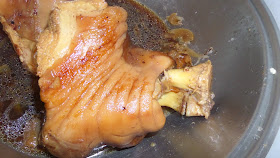
Autumn - February Newsletter 2015 Photo courtesy NZ Chinese.
Helen Wong of New Zealand Chinese wrote a wonderful review wrote a wonderful review in the New Zealand Chinese Asso Auckland Inc Autumn issue.
From China to Borneo and Beyond –
Ann Kit Suet Chin-Chan
I discovered this book, when I was at my printers
having some of my work printed. I picked up the book,
and was intrigued to read parts of it, as I flicked
through the pages.
Who was Ann Chin? I took a photo of the cover, and
added to my face book page and did the usual google
search. We made contact via face book, and had a
meeting. We swapped books – as you do.
Describers by the author as “a hundred year old
journal of two families, the Chans and the Kongs.”
recorded from 1907 to 2006. “From Kwang Zhou,
China, to the jungles of Borneo. It is a six generational
record with the second wave of movement to England,
Canada, Japan, Singapore, Australia, USA and New
Zealand.”
“The Opium war, virgin tropical jungle, Japanese
World War, colonial days, a revolution, a fight with the
communists; these were harshness and the difficulties
the families had to go through.”
Ann writes lovingly of each family person, from her
childhood memories, and gives us descriptive insights
– “Grandfather Kong … loved a drink or two, not too
much to make him drunk. When he visited us Mother
would offer him a bottle of Guinness Stout, an egg and
a big mug before her retired to bed. He poured the
stout into the mug, broke the egg into the stout and
drank the concoction. The creamy effervescent gave
him a white mustache on his upper lip and he made a
slurpy sound as his tongue licked the froth off… . We
used to cringe…when he swallowed the raw egg which
had sunk to the bottom of the mug. ”
The book is well written, and provides a distinctive
contrast to the lives that our own newly arrived New
Zealand forebears suffered during this period. It makes
me feel that they had it good.
From China to Borneo and Beyond – Ann Kit Suet
Chin-Chan Publication date: 1 March 2013 ISBN 10:
0473239000 and ISBN 13: 9780473239008
Ann Chin is the author of several books, including:
Diary of a Bereaved Mother, Goodbye my baby
Published 2011 ISBN 0473187094
Mail Order Bride ISBN :9780473254148
And is currently working on a new book.









































